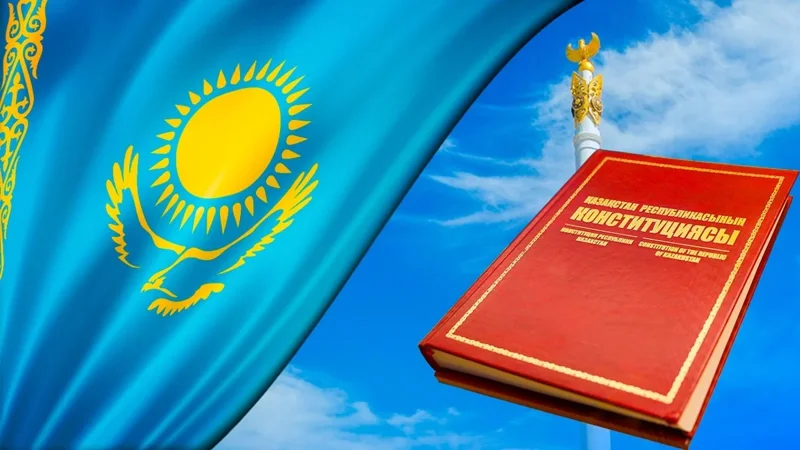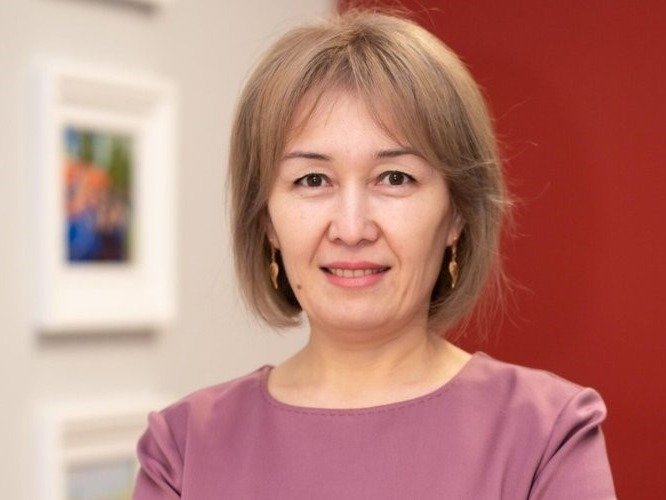From history to modernity: How our Constitution evolved alongside the nation
Kazakhstan marks Constitution Day every year on August 30. The Constitution is not only the country’s fundamental political-legal framework but also a mirror of its post-independence journey. This analysis by Kazinform News Agency examines the evolution of the Constitution and outlines expert views on its main stages.

Starting point
The first Constitution, adopted in 1993, played an important role in the formation and development of Independent Kazakhstan. It was adopted by the Supreme Council, which had been formed during the Soviet era. It was a transitional period, and the Constitution bore a “compromise” character.
According to the recollections of Igor Rogov, Chairman of the Human Rights Commission under the President of Kazakhstan, he and a number of lawyers prepared a letter that sharply criticized the 1993 draft.
“In the letter, we explained that many provisions contradicted the principles of a democratic rule-of-law state. The letter was considered, and most proposals were reflected in the draft of the 1995 Constitution, which was submitted to a nationwide referendum,” recalls Igor Rogov.
More than 8 million citizens participated in the referendum, over 90% of whom supported the reform. This was a breakthrough moment — the Basic Law introduced a bicameral Parliament consisting of the Senate and Majilis, ensured a legal balance of powers, and established many other key provisions.

When preparing the Constitution, many drafts of fundamental laws from different countries were studied, but France’s experience was the main reference point. According to its model, the power structure was borrowed: the President determines domestic and foreign policy, while the Government is accountable both to Parliament and to the President,” explained Igor Rogov.
The current Constitution was adopted on August 30, 1995, and this date remains one of the country’s main public holidays. As the nation developed, amendments and additions were introduced.
“In 1998, the term of office for Senate deputies was extended to six years, and for Majilis deputies – to five years. Mechanisms of parliamentary oversight over the Government were introduced, along with the institution of impeachment for ministers. Unlike many countries, in Kazakhstan impeachment could be applied not only to the Prime Minister, but also to individual ministers. Most importantly, the institution of jury trials was introduced into the Constitution,” emphasized Igor Rogov.
A Constitution responding to present-day challenges
Kazakhstan’s Constitution has evolved gradually and continuously. A special impulse came with the 2022 reform, which introduced 56 amendments across 33 articles – changing one-third of the Constitution. The reform marked the transition from a “super-presidential” model to a more balanced presidential republic with a strong Parliament.
“The sweeping reforms we initiated have launched profound change. A constitutional reform was implemented. All spheres of public life were comprehensively renewed. The aspiration of Kazakh citizens for positive change gave powerful momentum to our work. We will certainly complete the reforms we started,” said President Kassym-Jomart Tokayev at his 2022 inauguration.
Key innovations include limiting the presidential term to seven years, banning the relatives of the head of state from holding top government posts, abolishing the death penalty, restoring the Constitutional Court with citizen access, strengthening Parliament’s role, and enshrining the principle that land and natural resources belong to the people.
“One presidential term and the ban on family members holding state positions are real guarantees of leadership turnover and limits to personalization of power. In the long term, this strengthens democracy and public trust in the presidency,” noted Arghyn Iskakbekov, Executive Director of the Kazakhstan Union of Lawyers.

The role of the Constitutional Court for citizens
One of the key outcomes of the constitutional reform was the establishment of the Constitutional Court to replace the Constitutional Council. According to Aliya Orazbayeva, Director of the Institute for Constitutional and Political Research, citizens previously had no right to appeal to a body of constitutional review in cases where their constitutional rights were violated or restricted. Now, however, the situation has fundamentally changed.

“The Constitutional Court, as a body of constitutional review, does not belong to any branch of government, which significantly strengthens the system of checks and balances in public administration. Today, the Constitutional Court is accessible to citizens and actively reviews normative legal acts for compliance with the Constitution, especially those affecting their rights and freedoms guaranteed by the fundamental law,” the expert explained.
According to Aliya Orazbayeva, most citizen appeals are related to disagreements with court rulings. This reflects accumulated dissatisfaction with the quality of justice and a weak understanding of the Constitutional Court’s role, as it has no authority to revise judicial acts.
“Public trust in the new institution of constitutional review is being strengthened thanks to the effective enforcement of the Court’s decisions. Prosecutors, courts, and professional legal communities play an important role in this process by ensuring that rulings are implemented and correctly applied in practice,” she noted.
Moreover, the Human Rights Commissioner, the Prosecutor General, and the courts may now appeal to the Constitutional Court in order to establish constitutional legality. The laws “On the Prosecutor’s Office” and “On the Human Rights Commissioner” have been given constitutional status.
“Based on the analysis of the national model of constitutional review, it can be concluded that it meets citizens’ expectations, ensures the principles of equality, protects dignity, and achieves lawful justice,” Aliya Orazbayeva concluded.
Parliament and Government: New powers
The reforms also strengthened the role and status of the Parliament, granting it authority to approve the Prime Minister and oversee budget spending. According to Arghyn Iskakbekov, Government accountability increased through parliamentary oversight and the work of the Supreme Audit Chamber.
“Nevertheless, the real transition to a more balanced model depends not only on constitutional changes but also on how actively Parliament will exercise its powers and how strongly society will demand government accountability,” said Iskakbekov.
It is also worth noting the changes in the procedure of forming the deputy corps and the competencies of Parliament and its chambers. Now, 70% of Majilis deputies are elected by party lists, and 30% through single-mandate constituencies. A mixed system has also been introduced for maslikhats.
“In the Senate, along with representatives from the regions, there is a group of deputies representing the entire people of Kazakhstan. These include five deputies appointed by the President on the recommendation of the People’s Assembly of Kazakhstan, as well as five deputies appointed by the President to ensure consideration and balance of various social interests,” explained Aliya Orazbayeva.
Previously, the Majilis only considered and approved draft laws, while the Senate had the final say. Now, laws are adopted by the Majilis and only confirmed by the Senate. Both chambers have received new powers – they must approve the President’s nominees for the Chairpersons of the Constitutional Court, the Supreme Judicial Council, and the Supreme Audit Chamber. Constitutional laws are now jointly reviewed by both chambers, in at least two readings.
“The introduction of a mechanism to override presidential objections on constitutional laws has increased Parliament’s activity, making it more responsible and influential in the legislative process. The constitutional changes are a significant step toward strengthening the representative branch of power and redistributing political authority. However, the effectiveness of these changes will largely depend on political culture, the activity of deputies, and the real practice of applying the new norms,” Aliya Orazbayeva believes.
Experts also note that the adoption of constitutional amendments has increased the role and responsibility of the Government – it now has the ability to submit draft laws to Parliament for rapid response to threats to the life and health of the population, constitutional order, public order, or the country’s economic security.
“This constitutional mechanism was created to respond to extraordinary circumstances. It is not intended for regular use and is based on the shared responsibility of both Members of Parliament and members of the Government,” explained Aliya Orazbayeva.
International practice
Constitutional changes in Kazakhstan fit into global practice, notes Arghyn Iskakbekov. For example, the United States has adopted 27 amendments over two centuries – from the abolition of slavery to women’s suffrage – which have maintained the relevance of its Constitution. Germany’s 1949 Constitution enshrined the primacy of human rights and withstood the country’s reunification. Türkiye, having adopted its 1982 Constitution after a military coup, is now reforming it toward a more democratic “civil” model.
“At critical stages of state development, constitutional amendments are justified if they serve as instruments of renewal and state-building, and are aimed at protecting citizens’ rights, the rule of law, and the sustainable development of the state and society,” the lawyer concluded.
In Kazakhstan, the 2022 constitutional reform strengthened the foundations of the state and set a long-term democratic trajectory for the country.
“Today, we reaffirm the correctness of our strategic choice, which leads us along the path of progress toward a civilized society. The 2022 referendum recorded an unprecedented level of national consolidation around the strategic objectives set before our state. The widespread support by citizens for the newly proposed political course has reinforced its irreversibility,” Head of State Kassym-Jomart Tokayev emphasized, addressing the Aug. 29 conference “Constitution and Statehood: Dialogue of Law and the Future,” timed to the 30th anniversary of the Constitution of the Republic of Kazakhstan.
Overall, constitutional reform became a key element of large-scale political modernization. Most importantly, the transformation continues.
